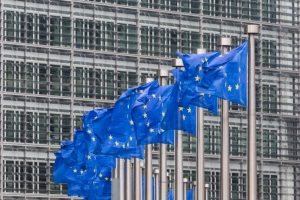In an effort to improve the lives of ordinary citizens, even though European Parliament de jure does not have the right to conduct a legal initiative, representatives can ask the Commission to prepare legislative proposals which they will amend through parliamentary procedure, which means that the Parliament de facto does have a legislative function as well.
As one of Croatia’s representatives at the European Parliament, and a former Minister of Foreign Affairs, Tonino Picula discovers for Diplomacy&Commerce to what extent the Croats are using the mechanisms of European policy, what are the challenges for the region and for the entire continent, and how he sees a solution for these challenges.

1.What has essentially changed between Croatia and Europe over these four years since Croatia became a member of the EU?
It is good to remind that precisely Croatia is the first country to apply for membership in the EU in the 21st century. When it finally became a full-time member of the European Union, this was the eighth enlargement in the history of EU, and only the second one where only one country became a member. By entering the EU, Croatia gained a direct possibility to take part in Union’s policies, in making decisions that directly affect the everyday life of Croatian citizens. We should certainly underline the possibility to travel without passports and the possibility of employment in the EU without any special work permits. Opening of the labour market for Croatian entrepreneurs has expanded business opportunities on EU’s internal market with more than 500 million consumers, and on markets of countries with which the EU has concluded trade agreements. The essence of changes reflects in Croatia’s position at the European table, where Croatian representatives today sit as equal interlocutors with all the negotiating and voting rights. To summarize, four years after the entry we can see that temptations tied to negotiations have continued through the challenges of consuming membership in the EU.
2. Is Croatia more occupied today by problems it shares with the rest of the European space, like terrorism, the migrant crisis or challenges arising from relations in the region?
Four years after Croatia’s official entry into the EU, neither Europhiles nor Eurosceptics don’t doubt that the Block is going through the period of the most serious re-examination since its foundation. Of course that regional countries are part of the European space, not only geographically, but also through its own dedication to European integrations and because of Union’s willingness to keep the doors to membership open after all. For me, there is no “or” when we talk about the challenges of European space, as you stated it, or challenges arising from relations in the region which are still burdened by closer and further historical events.
3. How strong is European Parliament’s influence on EU policy changes, and what you consider to be your greatest contribution in that sense?
In 2009, the European Parliament has received extended powers which made it more equal with the Commission and the Council, whose drafts they can change in parliamentary boards. The European Parliament is a big forum with 751 representatives where good ideas, clearly articulated plans and objectives are recognized quickly, and initiatives are supported. For example, I worked together with colleagues from the Seas, Rivers, Islands and Coastal Areas Intergroup, which I co-founded and am VP for Islands, on a parliamentary Resolution on the special situation on islands, which was voted last year in February. With this, the islands were placed on the European agenda for the first time as a separate entity, and we can expect important changes in the cohesion policy that will facilitate access to all European, as well as Croatian islands.

4. How do you interpret Mr Juncker’s recent statement that EU won’t receive new members any time soon, but will pay more attention to Western Balkan countries?
With this, Juncker somewhat adjusted his well-known statement from 2014 when he said that there will be no new enlargement during the term of his Commission. Of course, it didn’t occur to him then that the EU would decrease for the first time in its history, and during his term! Considering this fact that left consequences in countries that aspire to become members, it is necessary to find a form that guarantees the political future of Western Balkan countries in the European Union. However, we ought to say that “paying more attention” significantly depends on the countries that are on their road to membership. They have to cross the road from promises to results. Also, after a while, the Balkan is again becoming the space that’s making European politicians raise eyebrows. It’s no secret that Russia and Turkey have their geopolitical agendas in the Western Balkan. If EU stops being a reachable goal for Western Balkans countries, then these orders might crash. The Western Balkans is not an EU neighbourhood, but its inner yard and we cannot allow it to become a form of EU’s political subcontinent, because that can be very dangerous.
5. How do you rate the safety challenges in the region from Croatia’s position, and what, in your opinion, are the modalities for resolving these open issues?
As a representative at the European Parliament, I take special interest in safety and defence issues. I am a member of the Supervisory Board. I organized a conference on European Defence Union on 22 and 23 June 2017 in Dubrovnik. One of the more important panels at this conference, with participation of defence ministers from three regional countries, was dedicated to safety challenges in Southeast Europe. It was also concluded, and in my opinion that is the only long-term sustainable solution, that a credible process of accession to EU – based on extensive and proper conditioning – remains an important tool for promoting safety and increase of resistance of countries in Southeast Europe. We should not close our eyes before the fact that there are a number of open bilateral issues between the regional countries, which could be a source of new uncertainties, but I believe that we learned from our recent past that open issues must be resolved diplomatically, whether bilaterally or through mediation of third parties. And last, internal democratization, reduction of radical tendencies and spreading the European values within the societies of countries in the region, could be the stabilizing factors. We also expect stronger dedication of political leaders here, who have to forget about particular interests and remove unnecessary creation of tensions from daily politics.
6. As Croatian representative at the European Parliament, how much can you do for resolution of practical problems of citizens and the economy?
The citizens elected me twice to sit at the European Parliament with the highest number of preferential votes, and my biggest responsibility is to justify their trust. Nothing is set in stone, which is seen on the example of small-scale fishing in Croatia. But, it’s important that there’s a will to fix things primarily on a national level. That is when I, as the representative, must cooperate with the relevant Ministry department and change things on a European level. Last year, small-scale fishing was declared a cultural property, which is a step forward and proof that things can change over and over again. Then there’s the protection of autochthonous products – the region where Croatia, as the newest member of the European Union, is located is yet to be branded. At the moment we have 15 protected products, and 8 others that are in the process of protection. Aside from the fact that this will makes us recognizable in European and in the world for our quality prosciutto, cheese, honey, olive oil, wines, etc., another reason is certainly that the price of products with protected designation of origin is almost 2.5 times higher than for products not protected by the European protected designation of origin. These are merely some of the specific examples where I am trying to move things forward.
7. Are Croatian citizens sufficiently using the possibility to ask questions to the European Commission, with your assistance?
It took a while for Croatian citizens to realize that more than 50% of laws that directly affect their everyday lives are passed at the European Parliament, but as time passes, there are increasingly more queries from citizens, as well as results. My Office is regularly contacted by Croatian entrepreneurs and associations that present their problems to us and propose solutions that can be carried out on a European level. As a representative, I then react towards the Commission, submit amendments and actively work in the European Parliament in accordance with Croatian interests.